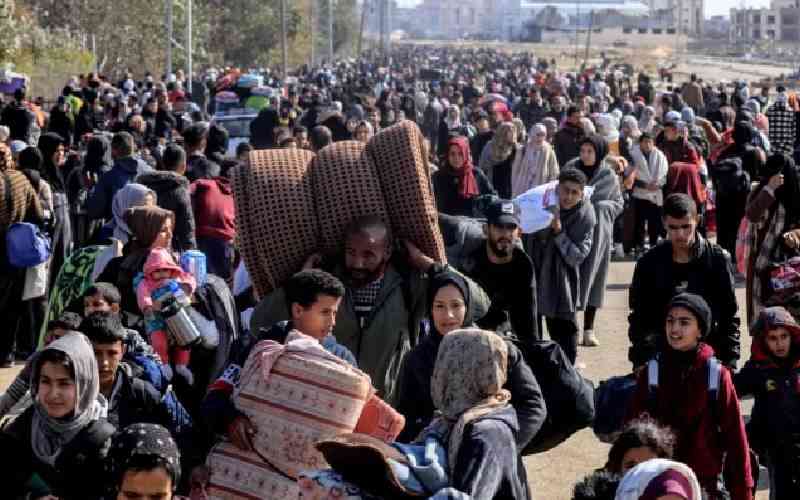
The United Nations' relief agency for Palestinians warned Thursday of a deepening humanitarian crisis in Gaza if 16 donor countries continue to withhold financial support while the U.N. investigates the role that a dozen aid workers allegedly played in the shock October 7 Hamas attack on southern Israel.
Tens of thousands of people have been forced to flee south from Khan Younis in the last week to escape Israel's bombardment of Gaza's second biggest city, adding to the 1.4 million displaced already sheltering in the Rafah region near the Egyptian border, the United Nations Relief and Works Agency said in a statement.